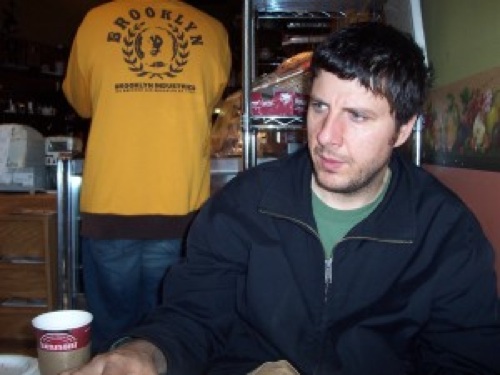A Genuine and Generous Strangeness: Matthew Zapruder in Conversation with Dean Rader
Dean Rader at Huffington Post checks in with Matthew Zapruder for a little conversation, centered mostly on the contemporary poetry landscape and the poet/reader relationship.
From the chat:
Zapruder: I think a misconception some people can have about poets is that they are mainly interested in "language" as pure material, as something outside of its function as a communicative mechanism. Maybe this is because at least on the surface some poems seem uninterested in a reader. I am very interested in the reader, in fact there is probably nothing I am more interested in.
It is not exactly a breakthrough in cultural criticism to point out that nowadays our world is filling itself up more and more with distractions that take us out of the moment and into other spaces. I write poems to take myself out of that distracted, half aware, limited space, which I am just as susceptible to as anyone else. And when I find the "door" it comes in the form of some sentences that I, and also anyone else who picks up the poem, can read and understand and feel something deeper and stranger and more mysterious and more real.
Often people are surprised by the fact that I speak in a regular way in my poems, even if the order of what I am saying or the ideas are unfamiliar. Did you feel as a beginning poet, or a student of poetry, that it was somehow not "poetic" enough to write in conversational language? Also, I'm curious what your students said they did like about poetry?
Rader: Well, obviously, my students cited poetry's impressive track record placing recent graduates in high-paying jobs... Actually, most said they like poetry's "emotion." Some said they enjoyed having a personal connection with individual poems, and they appreciated being able to relate to a feeling or idea. For them, it was really important to be able to connect with the poem on an emotional (and sometimes intellectual) level. Some said they liked how poetry made them see things in a new way, and one or two mentioned how poetry can be "beautiful," which is in part a nod to language, but literally no one specifically talked about what we would call "poetic language."
And, shortly thereafter:
Rader: Let me ask you one last question. What is the one thing you want for contemporary poetry? What would you like it to do that it is not presently doing?
Zapruder: As for contemporary poetry, I guess I would come back to something we were talking about earlier in this interview. I wish for contemporary American poetry that the poets keep the reader more in mind: that poets continue to find various and authentic ways of thinking about who might read their poems and why. I don't mean in order to present the poems as a "product" or accessory to a cultured or hipster lifestyle (poetry should never try to be cool, that's just embarrassing, it's like when a dad tries to be friends with his kid's friends). And I don't mean that poems should always be about familiar or common experiences. I mean that readers should be able to feel in poetry today a genuine and generous strangeness, a reaching out, a desire on the part of the poem itself (as odd as that may seem to say, it is how it feels to me when I read poems, that I am having an experience with the poem itself) to make contact and increase the actuality of imagined spaces.



